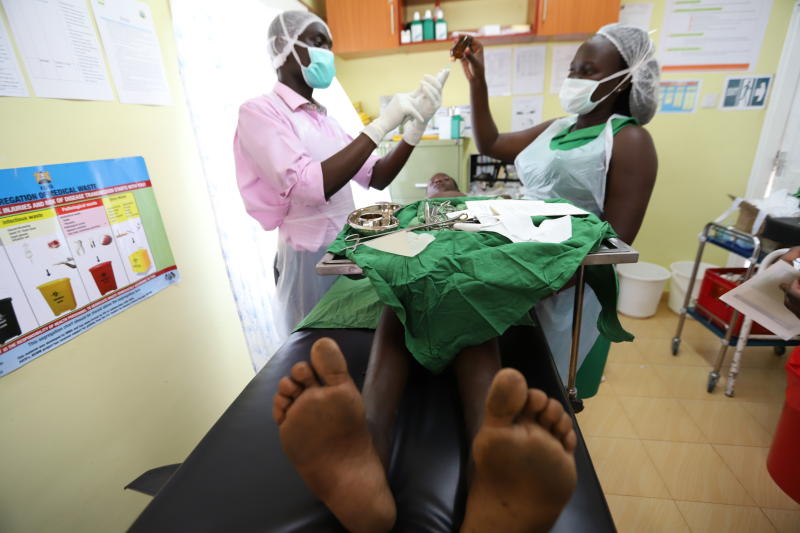×
The Standard e-Paper
Join Thousands Daily

A youth undergoes a cut during a Voluntary Male Circumcision (VMC) at Masogo dispensary in Muhoroni constituency on April 19, 2018. [Denish Ochieng, Standard]
Experts have warned of a possible surge in HIV infection in Nyanza following reduced male circumcisions.






